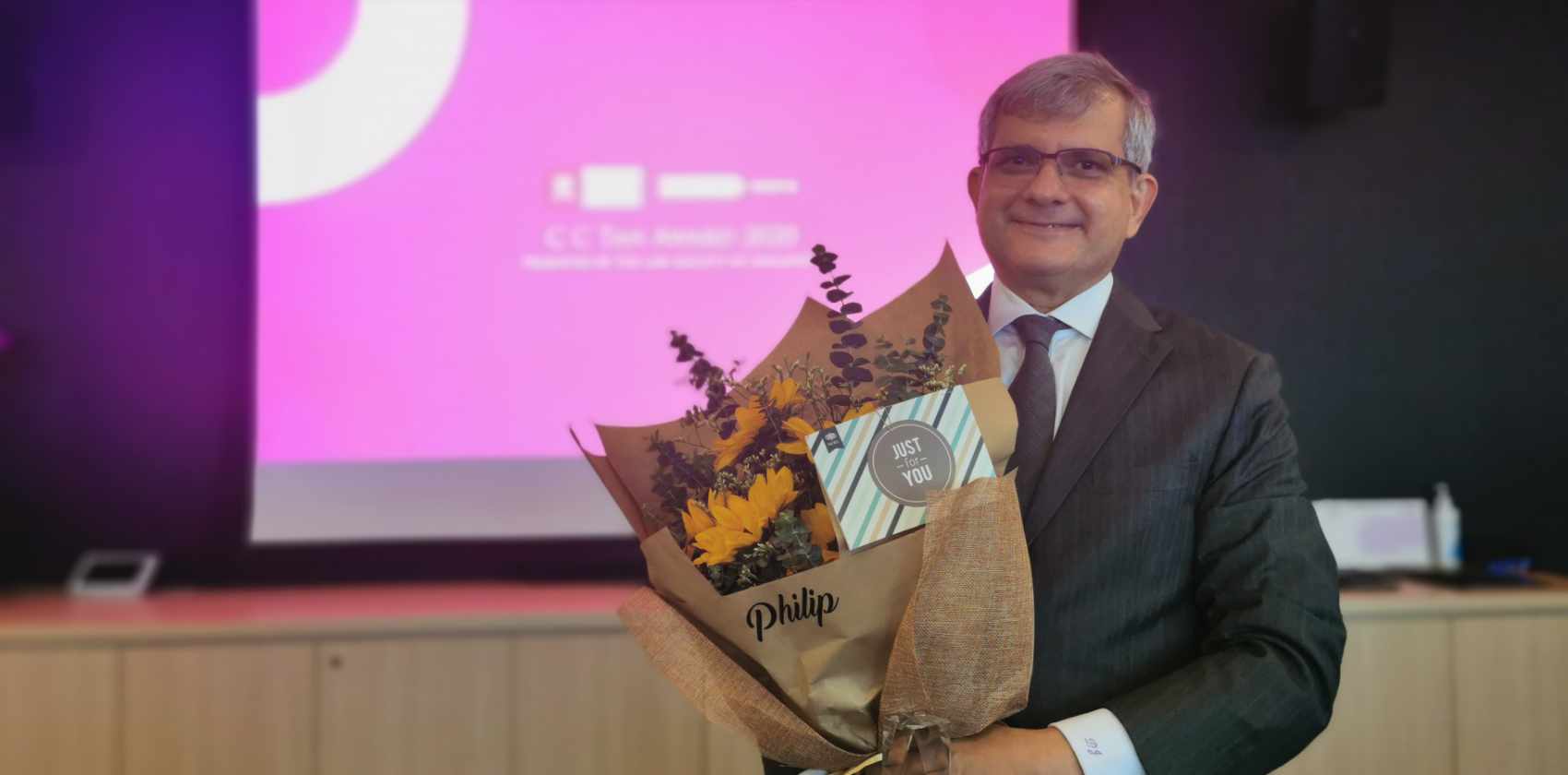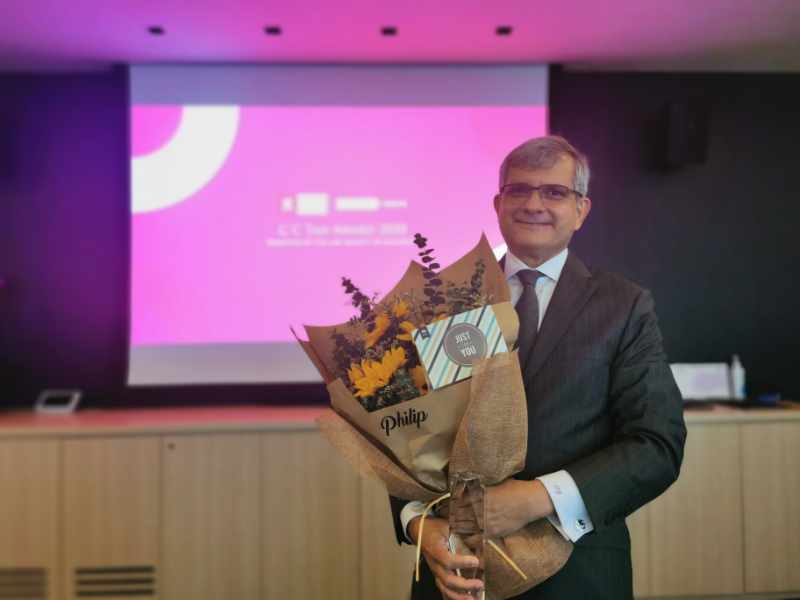
C C Tan Award 2020 Acceptance Speech
Mr Philip Jeyaretnam, SC
I am deeply honoured to receive the C C Tan Award. I thank the Council of the Law Society for this award. I especially appreciate receiving it from President Gregory Vijayendran, who has devoted himself to the profession.
As an advocate, I would not miss this opportunity to say a few words.
Uniquely among professions, our work often brings us into combat with each other. It is not just a matter of competing for business. We fight in court or spar over the negotiating table, each doing their best for their client and seeking the upper hand. Paradoxically, it is precisely this condition of frequent strife that makes the legal profession one of the closest knit. Lawyers are highly collegial, and like nothing better than to gather together in the bar rooms, or in actual bars, and there gossip, make merry and redirect their emotions against common enemies, whether these be difficult clients or impatient judges.
The core of our profession is putting our clients first: telling their stories, not our own, advocating their causes, not our own. This ethos of service to others makes lawyering special, and brings with it a full set of duties and responsibilities that guides us in the performance of our role. We play a role, and the ethics of that role are both essential and not obvious. Professional ethics must be studied, and not assumed. For example, honesty in performing the role is not the same as honesty in ordinary life – the advocate who candidly confessed all the sins of his client would not be performing his professional duty. But the advocate who positively asserts something not backed by what the client has told him, or who misstates the evidence, or misleads on the law, has crossed the line.
It’s not easy to get it right. One young lawyer may be too quick to concede a point, another may be too free with the facts. It’s not a matter of instinct but of experience undertaken in the right spirit and with the right teaching. This is where having the abiding desire to learn and improve meets with the readiness of seniors to guide and instruct, and the call of the profession is answered by its collegiality so as to lift us all up, learners and teachers both, make us individually better lawyers, and our profession fully able to meet the needs of society, and play the role in the justice system.
I have been fortunate. As a young boy I already witnessed much of the best our profession has to offer. I saw my father’s courage and tenacity in court as a criminal defence lawyer. I witnessed how my mother’s kindness to, and rapport with, her conveyancing peers, both senior and junior to her, would make everything go more smoothly, for the benefit of both clients. In London, I learned from two contrasting barristers, Lord Alexander Irvine QC, later Lord Chancellor, forceful and robust, and Patrick Elias, later QC and then Court of Appeal judge, who was gently and cerebrally persuasive. Back home, I was lucky to be given advocacy opportunities by Woo Tchi Chu, an exemplar of fairness, and then by Helen Yeo, who was always bold and decisive. I learned too from observing others, such as our Law Minister, when he was in practice, who understood that sometimes, to do the best for a client, one should be ready, as cross-examiner, to “go for the jugular”. Michael Hwang was an inspiration as an advocate, with his measured, considered and persuasive style.
I also learned from teaching advocacy, when the Law Society took on the role in the Nineties with the help of George Hempel, with so much wisdom being imparted by my fellow teachers on the advocacy Committee such as the late Harry Elias, Chelva Rajah and George Lim.
I have continued to learn, including through leading the members of my own team at Dentons Rodyk, who are very talented and have the right attitude of always wanting to improve so as to do the best for clients. The simple truth is we learn by teaching, because we have to synthesise our experience, and distil that experience into points and principles. This leads to insight for ourselves too.
As lawyers, we start by understanding what our duties are, it’s hard work and a lot of effort, but in the end we fall in love with the profession of lawyering, and suddenly it all becomes natural.
The profession find strength in remembering our commonalities. Otherwise, the stresses and strains of practice will weaken us. I recall that when I became President of the Law Society, 17 years ago, I saw as my first and primary task to win the support of all, from large firms to sole proprietors. The temptation for large firms is to view the Law Society as not truly relevant for them, yet at the same time some lawyers in small firms may be alienated from the Society, which after all plays a key regulatory role. Building unity took extensive outreach, and finding shared causes, such as the establishment of the Pro Bono Services Office, around which all lawyers could rally. While it is important that we all undertake some pro bono work and fight for the underdog, the simple ordinary practice of law for clients who pay for advice and representation is important too. A profession united in our common calling is better able to perform its social role, in support of justice and rule of law.
I am grateful for being a lawyer and an advocate, knowing that at times I have made a positive difference to the lives of others, through my knowledge and my skills, understanding clients better so as to represent them better, finding the right angle to get at the hidden truth as a cross-examiner. Lawyering is a noble and honourable profession. It offers life-long service to those fortunate enough to have the health to carry on, as my father did, cross-examining on the same day in the evening of which he passed away, at the age of 82.
I am grateful for this award, and for the respect of my peers that it embodies. Thank you.







